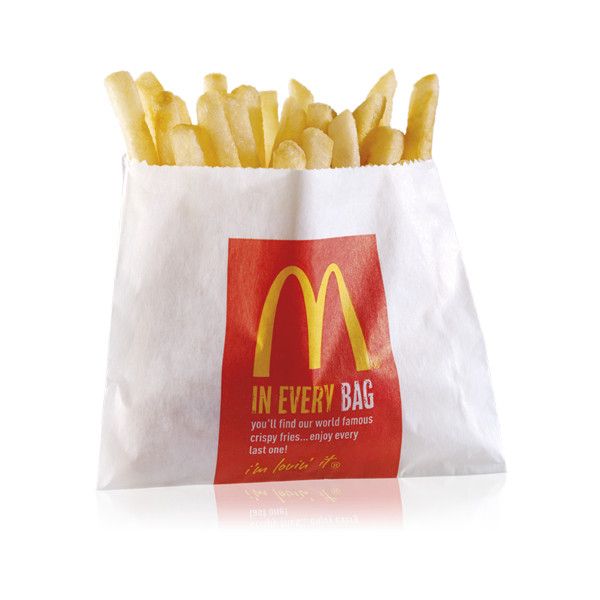Are you a fan of McDonald’s small fries? If so, you might be curious about their nutritional content, particularly the number of calories they contain. In this blog post, we will delve into the caloric breakdown of McDonald’s small fries, providing you with the information you need to make informed choices about your fast food indulgences. Additionally, we will explore the evolution of the French fry recipe and uncover some interesting insights into the nutritional information provided by McDonald’s. So, if you’re ready to satisfy your curiosity and learn more about the calories in McDonald’s small fries, keep reading!
Unveiling McDonald’s Commitment: A Comprehensive Disclosure

small fries
Renowned for its global footprint in the fast-food industry, McDonald’s has always been at the forefront of maintaining impeccable transparency in relation to their food ingredients and nutritional facts. This commitment extends beyond mere compliance with government regulations. It’s about keeping the customer at the heart of their operations, ensuring they are informed and empowered when making their food choices. Find out at what time does McDonalds serve lunch?
As an industry leader, McDonald’s has pledged to align with the U.S. FDA’s identification of the nine most common allergens. They strive to provide the freshest and most accurate ingredient information, thereby promoting a culture of trust and openness. However, McDonald’s is also candid about the challenges they face in this endeavor.
While the company has stringent precautions in place to mitigate the risk of cross-contamination of allergens, they acknowledge the inherent limitations. Shared cooking and preparation areas mean that the risk of cross-contamination, though minimized, cannot be completely eradicated. This transparency is particularly crucial for customers with food allergies or special dietary needs, who need to be extra vigilant about what they consume.
McDonald’s encourages these customers to leverage their website for comprehensive ingredient information. The site is regularly updated to reflect any changes in their offerings. However, they also stress the importance of consulting with health care providers to ensure their dietary needs are met safely and effectively.
McDonald’s commitment to transparency is a testament to their dedication to customer satisfaction. They recognize that their diverse clientele has varying dietary needs and preferences, and they strive to accommodate these to the best of their ability. As such, McDonald’s remains a trusted choice for many, serving up not just tasty meals, but also peace of mind.
Unveiling the Science Behind Nutritional Information

small fries
McDonald’s nutritional information is not just a collection of random facts hastily scribbled on the back of product wrappers. Rather, it’s a meticulously curated data set, derived from a network of trustworthy sources. This includes accredited laboratories, renowned published resources, and direct communication with their suppliers. This detailed process ensures the accuracy and credibility of the information, instilling confidence in customers about what they consume.
Each piece of information is based on standard formulations and serving sizes, offering a realistic snapshot of the nutritional value of each product. However, it’s crucial to remember that, like in any culinary endeavor, variations are inevitable. Factors such as serving sizes, cooking methods, local resources, and periodic changes in formulations can influence the nutritional content of the products. This is why a certain degree of flexibility is required while interpreting the data. It’s not about pinpoint accuracy, but rather about providing a reliable ballpark figure.
McDonald’s is also upfront about the limitations of their menu. Despite their global reach and diverse customer base, McDonald’s US menu items are not claimed as Halal, Kosher, vegetarian, vegan, or gluten-free. This is primarily due to the absence of certification and the risk of allergen cross-contamination. It’s a testament to their commitment to transparency, even if it means acknowledging the limitations of their offerings.
It’s also worth noting that McDonald’s is continuously evolving, updating their menu to cater to changing customer preferences and dietary requirements. They are constantly exploring ways to enhance the nutritional profile of their products, without compromising on taste. So, while the nutritional information provided offers a comprehensive overview, it’s always a good idea to check their website for the most recent updates.
McDonald’s commitment to transparency and accuracy in their nutritional information is commendable. It’s a reflection of their dedication to customer satisfaction and health, making them a trusted choice for many.
Decoding the Caloric Content: The Tale of McDonald’s Small Fries

small fries
Understanding the caloric content of the food we consume plays a monumental role in our decision-making process. This knowledge empowers us to make healthier choices, aligning our dietary intake with our fitness goals. Let’s unravel the caloric story of one of McDonald’s most beloved items – the small fries.
As per the latest update in January 2022, a serving of McDonald’s small fries contains 230 calories. This might sound like a significant number, but when juxtaposed with other fast-food giants such as Burger King, Chick-fil-A, Wendy’s, and Taco Bell, McDonald’s small fries emerge as a healthier alternative. This distinction is not solely based on the caloric content but also takes into account the reduced levels of sodium, carbs, and fat.
What’s more, the portion size of a small order of McDonald’s fries is on par with Burger King’s medium fries. However, the striking difference lies in the fact that McDonald’s fries carry only half the calories and cost. This revelation is a win-win situation for those who are conscientiously counting their calories and for those who are seeking to get the most bang for their buck.
But what makes McDonald’s fries stand apart? The secret lies in their unique recipe. McDonald’s fries are made with high-quality potatoes, cooked in a blend of canola, corn, soybean and hydrogenated soybean oils, and seasoned with a pinch of salt. This simple yet distinctive preparation method contributes to their lower caloric content, making them a healthier choice without compromising on taste.
Therefore, next time you find yourself craving a portion of fries, remember that McDonald’s small fries are not just a tasty, but also a comparatively healthier and cost-effective choice. The calorie-conscious and value-seeking consumers can rejoice in the fact that they can indulge in their favorite snack without disrupting their dietary goals or budget.
Stay tuned as we continue to delve deeper into the nutritional content and evolution of the McDonald’s French fry recipe in the following sections. Also check out the nutritional content of McDonalds famous cheeseburger.
Delving Deeper: The Evolution of McDonald’s French Fry Recipe
The journey of McDonald’s French fries recipe is a testament to the brand’s continuous evolution in response to changing consumer demands and dietary trends. The story of their recipe transformation is as captivating as it is enlightening.
McDonald’s French fries, once renowned for their distinct, savory flavor, were initially fried in a concoction known as Formula 47, primarily composed of beef tallow. This ingredient gave the fries a unique, robust flavor that was a major draw for the fast-food giant during its early years. However, as awareness about health and nutrition grew among the public, McDonald’s faced a crucial decision – to stick with their traditional recipe or to adapt to the changing times.
In the 1990s, McDonald’s chose to put the health of their customers first. They significantly altered their iconic French fries recipe, replacing the beef tallow with a vegetable oil blend. This change was not only a bold step towards promoting healthier food choices but also an indication of McDonald’s commitment to meeting their customers’ evolving preferences.
While the switch from Formula 47 might have stirred a wave of nostalgia among those who grew up relishing the original taste, it was warmly welcomed by health-conscious customers. These patrons appreciated the effort McDonald’s took to enhance the nutritional profile of their beloved fries, without compromising on the signature taste and crunch that they had come to love.
McDonald’s French fries are not just a side dish; they’re a testament to the brand’s adaptability and dedication to customer satisfaction. The evolution of the French fry recipe underscores McDonald’s commitment to providing delicious, yet healthier fast-food options to their customers around the globe.
This transformation is a clear example of how McDonald’s has always prioritized its customers’ needs, setting the benchmark for other fast-food chains to follow suit. The brand’s willingness to adapt and innovate has undoubtedly played a significant role in its enduring success and popularity among fast-food enthusiasts worldwide.
Digging Deeper into the Nutritional Content
McDonald’s small fries, a staple in the fast-food world, offer more than just a satisfying crunch and a delightful taste. They also present a surprisingly balanced nutritional profile that can fit into a mindful eating plan. A single serving of these iconic fries packs a modest 230 calories, making them a relatively low-calorie option in the realm of fast food, as well find out how many calories are in McDonalds medium fries.
Let’s delve deeper into the nutritional breakdown. The 11g of total fat in a serving of McDonald’s small fries is a mix of healthier unsaturated fats and saturated fats. The latter, at 1.5g, is well within the daily intake recommended by health organizations. The fries also contain 160mg of sodium, which contributes to the savory taste that McDonald’s fries are known for. While this might seem high, it’s important to balance this with other lower-sodium foods throughout the day.
Carbohydrates, the body’s primary energy source, come in at 29g per serving. This includes 3g of dietary fiber, which aids in digestion and promotes a feeling of fullness. Protein, an essential nutrient for muscle growth and repair, is present in a modest amount of 3g. Interestingly, these fries contain 0g of sugar, making them a savory snack choice that doesn’t contribute to your daily sugar intake.
However, it’s worth noting that McDonald’s French fries do contain allergens. While the specifics aren’t outlined, McDonald’s encourages customers with food allergies to seek advice from their healthcare provider. This shows the fast-food giant’s commitment to the health and safety of its customers.
Overall, the nutritional content of McDonald’s small fries showcases a balance of macronutrients. It’s a testament to McDonald’s efforts to provide transparency in their nutritional information, create healthier fast food options, and cater to the diverse dietary needs and taste preferences of their global customer base. So, whether you’re looking for a quick snack or a side to complete your meal, you can enjoy McDonald’s small fries with a clearer conscience.
FAQ & Users Questions
1. Are McDonald’s small fries considered a healthier option compared to other fast food fries?
Yes, McDonald’s small fries are considered a lighter and healthier option compared to fries from Burger King, Chick-fil-A, Wendy’s, and Taco Bell. They have fewer calories, less sodium, and fewer grams of carbs and fat.
2. How many calories are there in McDonald’s small fries?
McDonald’s small fries have 230 calories per serving.
3. What is the nutritional breakdown of McDonald’s small fries?
The nutritional breakdown of McDonald’s small fries includes 230 calories, 11g total fat, 1.5g saturated fat, 160mg sodium, 29g carbohydrates, 3g fiber, 0g sugar, and 3g protein.
4. Are McDonald’s small fries suitable for people with food allergies?
The article states that McDonald’s provides ingredient information for the nine most common allergens as identified by the U.S. FDA. However, there may be shared cooking areas and the possibility of food items coming into contact with allergens. It is recommended that customers with food allergies or special dietary needs visit McDonald’s website for more information and consult their doctor.
5. Are McDonald’s small fries suitable for vegetarians, vegans, or those following a gluten-free diet?
The article states that McDonald’s US menu items are not certified as vegetarian, vegan, or gluten-free. Therefore, McDonald’s small fries may not be suitable for those following these diets.
